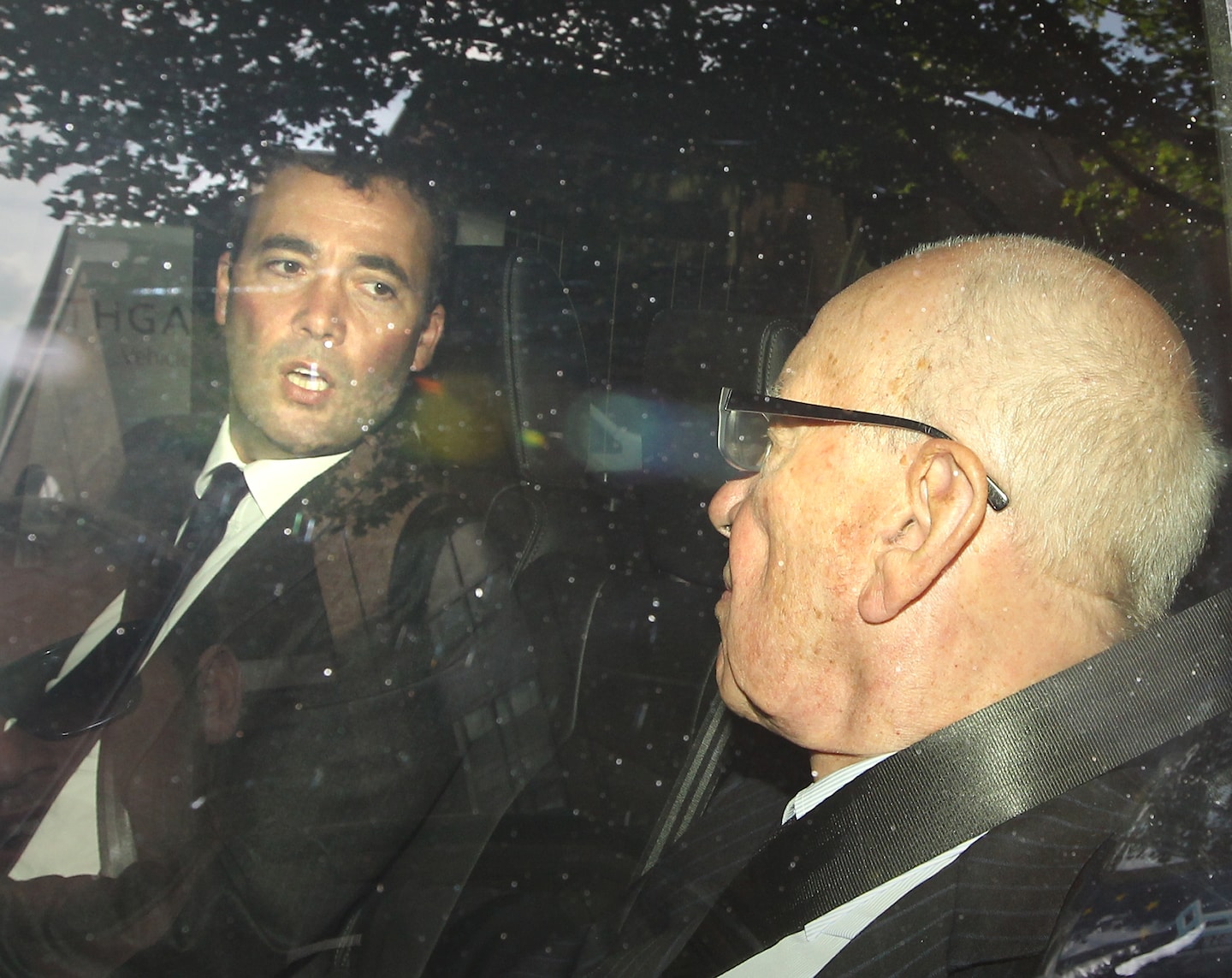LONDON — London Metropolitan Police have told former British prime minister Gordon Brown that they are considering his request to open a new police probe into allegations of an effort to cover up information about a phone-hacking scandal that took place at Rupert Murdoch’s tabloid titles over a decade ago.
Brown’s calls have come as new information has emerged about the 2011 episode through litigation filed by Prince Harry, King Charles III’s younger son, against Murdoch’s News Group Newspapers (NGN), the publisher of the Sun and News of the World, which was shuttered in 2011.
In a letter dated June 19, 2024, that was first reported by the Guardian newspaper and seen by The Post on Wednesday, Metropolitan Police Commissioner Mark Rowley wrote that a “special enquiry team” is examining Brown’s allegations that the company was involved in a coverup by deleting millions of emails during a police investigation.
“The issues you raise are complex and will take time to consider against investigations that have already taken place,” Rowley wrote.
Lewis has denied wrongdoing. On Wednesday, he declined to comment through a Post spokeswoman.
Victims of the phone hacking claim the email deletions were part of an effort to cover up executives’ awareness that Murdoch journalists had illegally obtained voicemails of thousands of people, including politicians, royals and even a murdered teenager. The company has spent a reported $1.5 billion to settle more than a thousand phone-hacking claims, with settlements continuing into this year.
Murdoch’s company has said in court filings that the company’s emails conformed with a data-retention policy and were deleted for “commercial, IT and practical reasons” and not as part of a plan to conceal evidence. A company spokeswoman has also noted that British prosecutors previously examined the email deletion issue and declined to pursue criminal charges.
“It is strongly denied that News International [NI] sought to impede or worse conceal evidence from the MPS investigation,” said a spokeswoman for Murdoch’s U.K. publishing company, now called News UK, on Wednesday. “These matters have already been the subject of considerable scrutiny in the criminal cases.”
Brown, who has said he believes his phone may have been hacked, has said new information has been revealed by Prince Harry’s lawsuit, including that Lewis told police in 2011 that there was a threat from an internal mole that impacted how the company handled emails at the time, according to documents submitted to court this week and previously reported by The Post. Lewis said the company feared the alleged leaker was relaying information from the email account of Brooks to Brown and Tom Watson, the former deputy leader of the Labour Party.
The News UK spokeswoman said Brown’s allegations were “not new and have formed part of the civil litigation for many years.”
A spokesman for the Metropolitan Police told The Post on Wednesday that Brown’s allegations continue “to be assessed and we will be writing again to update him on the likely timescales involved in that work.”
The Guardian on Wednesday published an opinion piece from Brown in which he accused Lewis of being engaged in a “complete fabrication.”
“I have only recently discovered how Lewis attempted to accuse me of a crime I did not commit,” he wrote.
“Blazoned across the top of every edition of The Washington Post is the statement ‘Democracy dies in darkness,’” Brown said. “But what if the publisher himself is a master of the dark arts?”
A spokeswoman for News UK said Brown had seen “partial information” and was trying to persuade the police to take sides in an ongoing civil case in which he is not a party.
Lewis, who took over at the Murdoch company as it was reeling from the phone-hacking scandal and helped manage its response, is not a defendant in the ongoing civil case brought by Prince Harry and other alleged phone-hacking victims. But a judge ruled in May that plaintiffs can air allegations that Lewis and others aided in the concealment and destruction of evidence related to the scandal.
Questions about how Lewis handled the episode deepened after reports in June that he sought to discourage The Post from covering developments in the civil case, an allegation he has denied.
The civil case is schedule to go to trial in London in January. At a pre-trial hearing at the London High Court this week lawyers for Harry and other plaintiffs claimed that Lewis and other executives concocted a “fake security threat” involving Brown and Watson that plaintiffs allege was used to justify “the deletion of millions of incriminating emails.”
Murdoch’s U.K. media company agreed in court to conduct a new search for documents linked to Lewis and others that may relate to the security threat, a reminder that Lewis will face continued scrutiny in the case in coming months.
Documents previously reported by The Post show that during a July 8, 2011, meeting, Lewis told the London Metropolitan Police that the potential existence of a leaker “added to our anxieties” about how to handle emails, but the company eventually did not find proof that the plot existed.
Anthony Hudson, a lawyer for NGN, told the High Court that the security threat was “believed to be genuine,” and the company has denied it was the reason that some 30 million emails were deleted. Nine million were never recovered.
Greg Miller contributed to this report.

